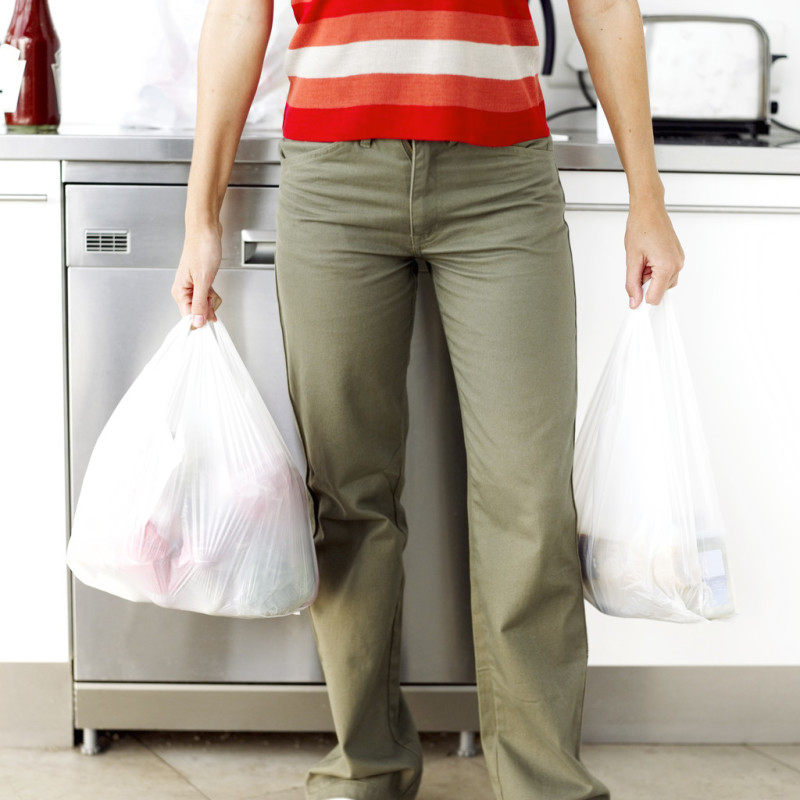
We go shopping and our purchases are most generally put in plastic bags.
We figure they are free and just a part of our purchases and never really think beyond that. When we get home, the plastic bag maybe thrown in the trash of stored in an area for spare plastic bags. They are great for picking up dog waste, lining our trash cans in our home, discarding of unwanted items, which are just a few of the uses. We think we are getting a real deal, as we didn’t have to pay for those plastic bags since they were just “freebie” we got along with our purchases. That is not so, those bags are costing all of us more than we realize. Not only in terms of dollars, but how about the impact on our environment, our resources, wildlife, landfills and the list goes on.
Plastic bags are made for polyethylene, which is a petroleum derived polymer. According to the Environmental Protection Agency, “Biodegradation is a process by which microbial organisms transform or alter (through metabolic or enzymatic action) the structure of chemicals introduced into the environment.” These microorganisms which are a part of the biodegradation process don’t recognize the polymer as food. However, the ultraviolet rays from the sun help break down the plastic into microscopic granules.
For every one ton of bags there is approximately 11 barrels of oil used in production, broken down further, the petroleum from the oil used to make 14 plastic bags is enough fuel to drive a car 1 mile. The plastic bags take over 1,000 years to decompose and the destruction and waste they leave behind. Think about how many generations of your family that would be into the future. Have you ever thought how many plastic bags are being consumed on a daily or annual basis? According to TLC A Discovery Company, in an article by Jessica Root, Green Planet, “Each year, approximately 500 billion to one trillion plastic bags are consumed worldwide. That’s over one million bags per minute, further broken down; approximately 60,000 plastic bags are used in the U.S. every five seconds.”
These plastic bags eventually end up in our landfills and think about the billions of acres of land that are just consumed housing our “trash” and it will be unusable with the plastic bags for over 1,000 years. The land that is housing our “trash”, which uses a polite term to reference as “landfills”, could be used productively to make a more sustaining environment for our future generations. However, as time moves forward, there will be more and more land consumed for landfills and more waste generated to create the plastic bags and more waste created trying to decompose them. According to MSN, “The production of plastic bags creates enough solid waste per year to fill the Empire State Building two and a half times.”
Let’s fast forward many years into the future to see the impact, we are reducing our available land, creating more waste and all of this has a tremendous impact on our environment, which includes our wildlife, marine life, depletion of our natural resources, and the air we breathe. What does our environmental future hold for us?